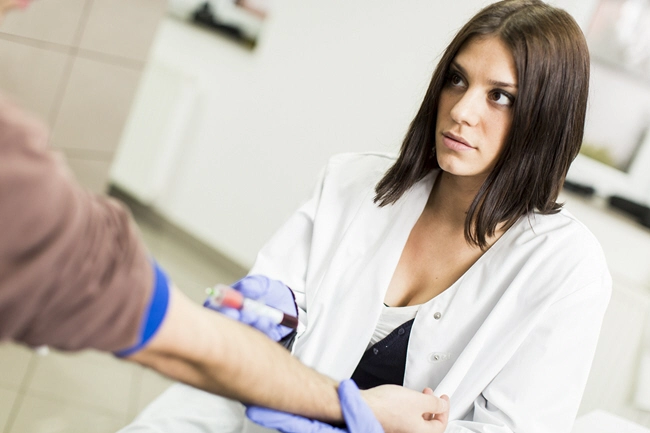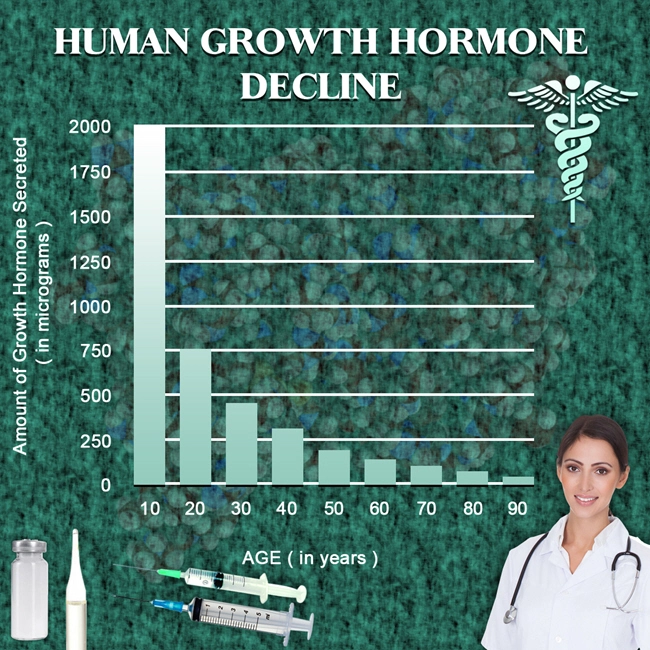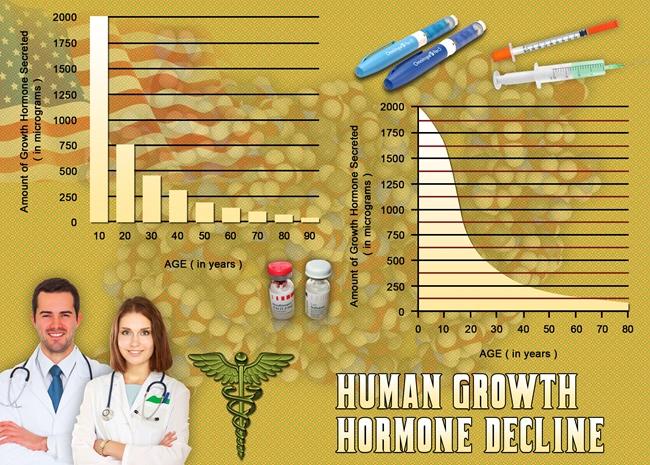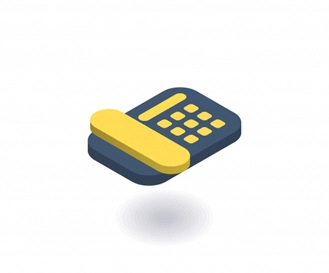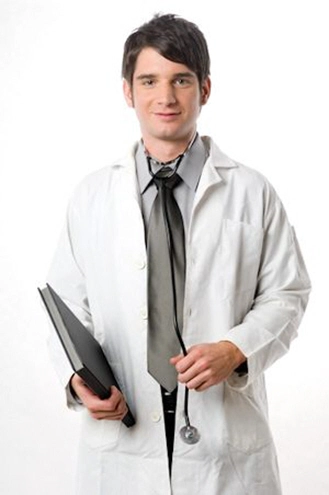
Video Link: https://vimeo.com/291646201
Video Download: Click Here To Download Video
Video Stream: Click Here To Stream Video
If so, you're in good company...keep reading to see who agrees with you
Fact: there is no one more subject to injury than professional athletes. They are painfully aware of the possible career-ending consequences of severe injuries and are well-versed in various treatment options.
It is also a fact that more athletes are clamoring for Human Growth Hormone (HGH) Replacement Therapy to be made legal by their sports sanctioning bodies to enable them to overcome the various afflictions they routinely suffer.
Currently, most sports have growth hormone on their banned list, due to the abuse of the hormone for performance enhancement. However, when used correctly, under strict medical supervision, growth hormone can work wonders to heal injuries when other treatment options have failed.
Here are a Few Examples of Athletes and Team Owners Speaking Out
 Ryan Madson has performed at the highest levels of his sport. The Kansas City Royal's relief pitcher has taken the mound in the World Series and has spent a lifetime perfecting his craft. Regrettably, he has also suffered the effects of throwing a fastball at 97 miles per hour, repetition after repetition.
Ryan Madson has performed at the highest levels of his sport. The Kansas City Royal's relief pitcher has taken the mound in the World Series and has spent a lifetime perfecting his craft. Regrettably, he has also suffered the effects of throwing a fastball at 97 miles per hour, repetition after repetition.
For the past three years, he has endured numerous frustrations while undergoing a variety of seemingly endless, futile attempts to recover from elbow surgery.
It's not like Madson doesn't have the latest cutting-edge treatments that can allow him to regain his previous form. But regardless of what he has tried, he is still suffering.
But There is One Cutting-Edge Treatment That He Has Not Been Able to Try
Human Growth Hormone. Madson asks why HGH use is banned in Major League baseball. Madison does not want to use HGH for performance-enhancing purposes. His goal is to rehab his injury and regain his razor-sharp conditioning by using HGH in a safe, controlled, medically supervised manner.
Madson believes that "if you've gone through all the procedures and treatments that are available," and a doctor is able to prescribe something that helps you get better, such as recovering from an injury more efficiently, then the professional athletes should be allowed to use that medicine. Especially if it's under the care of a doctor, "in a controlled manner," and therefore the doctors would know exactly what is being put into the body and for how long. This would be "for rehabilitation purposes only." We think that Madson makes a very good point.
It's Not Just Madson
Mark Cuban, who owns the NBA's Dallas Mavericks, has long advocated the use of growth hormone therapy for rehabilitation purposes for athletes. In the past, he proposed that professional sports leagues undertake research to determine if HGH could help in athletic recovery. When they didn't take action, Cuban did it himself.
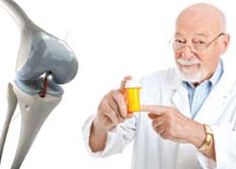 Mark Cuban brought up the fact that he himself funded research on human growth hormone and how it can help improve the healing process after ACL surgery. The research is taking place at the University of Michigan and will take another two years to complete.
Mark Cuban brought up the fact that he himself funded research on human growth hormone and how it can help improve the healing process after ACL surgery. The research is taking place at the University of Michigan and will take another two years to complete.
The FDA only allows growth hormone therapy to be used to treat a handful of hormone conditions, such as ones that stunt growth in children and for muscle-wasting diseases such as HIV. Growth hormone therapy is not currently recommended for treating a physical injury in order to heal faster or better.
The commissioner's office fought tooth and claw to include blood testing in baseball's drug policy. These mandatory blood tests are only allowed to identify HGH and there are no medical waivers for growth hormone. This means that even if the athlete is using growth hormone for legitimate reasons, such as growth hormone therapy for a deficiency or injury relief, it will not be accepted as an exemption from testing. We do not know if anyone has even tried this yet because only approved applications are disclosed according to their rules.
The chief legal officer in baseball, Dan Halem, says that the baseball organizations take their cue from the U.S. Anti-Doping Agency (USADA). The USADA follows a hard stance on the use of growth hormone in sports. According to their chief executive, Travis Tygart, they view the hormone solely as illegal and one that will enhance performance to such an extent that it should not be granted acceptance in professional sports.
Not only that, but he believes that the use of growth hormone could yield harmful health effects as well. He believes that it can cause cardiovascular issues, tumors, type 2 diabetes and/or carpal tunnel syndrome.
None of this, either the legal or health risks, have stopped hyper-competitive athletes from experimenting with growth hormone. Former New York Yankees pitcher Andy 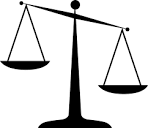 Pettitte admitted that he utilized human growth hormone therapy in order to heal from an injury to the elbow.
Pettitte admitted that he utilized human growth hormone therapy in order to heal from an injury to the elbow.
Once retired, former Los Angeles Dodgers Cy Young Award winner Eric Gagne also admitted using human growth hormone while active in professional sports.
The star of the Yankees, Alex Rodriguez, was busted for growth hormone use, in addition to other violations of baseball's drug policy. Rodriguez ended up being suspended for the entire season of 2014. That was quite a blow to his career.
Travis Tygart, despite his hardline stance on the illegality of HGH use, did not discount the chance that scientists may find "a line somewhere where recovery and rehabilitation meet advancement and performance." This line would allow physicians and physical therapists to discriminate between true medical use and glaring athletic cheating.
Tygart wants to know the answer to the critical question: Would HGH therapy for injury relief just get the athlete's back to their normal performance level while optimally healing the injury, or would it heal the injury but also improve performance above and beyond their average level?
Research was previously conducted, sponsored by the USADA, that found that platelet-rich plasma (PRP) therapy did not enhance performance and would not be banned for use by professional athletes.
He stated that USADA-sponsored research concluded that platelet-rich plasma (PRP) therapy was not a performance-enhancing treatment and should not be banned in sport. PRP therapy differs from HGH therapy in that the athlete's blood is being returned to their bodies without any foreign substances added in, whereas HGH therapy is adding a foreign substance.
Madson initially brought this subject up on the Los Angeles Angels' website. The team had signed him as its closing relief pitcher, one year after elbow surgery. At that time, he had investigated and assessed just about every treatment method known...without any substantial recovery. It took three long years to recover...a lifetime in the finite career of a professional athlete. He insisted he never used growth hormone. But he added that many players had told him that they agree with his opinion on human growth hormone therapy.
Madson has stated that he doesn't believe that HGH therapy needs to always be the first option given as a treatment for injuries and given to athletes in an "out of control" manner. He believes that it should be added to list of other options/medications already available, including PRP, massage, dry needling, etc. He doesn't see an issue with adding HGH therapy in conjunction with one or more of these techniques -- "a small dose...prescribed by a doctor." What could be the harm in that?
Athletes in Other Sports Agree
To hardcore fans of mixed-martial-arts (MMA), Mirko “Cro Cop” Filipovic is a legend. The future Hall-of-Famer has entertained MMA fans for years, in several MMA organizations worldwide. However, few sports are as physically punishing and demanding as MMA. After years of brutal competition at the sport's highest levels, a chronic shoulder injury became unbearable, to the point of forcing him to cancel a recent fight in the Ultimate Fighting Championship (UFC).
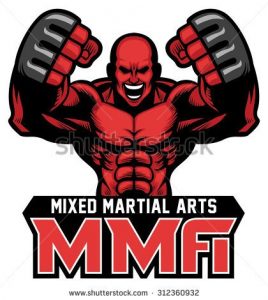 A despondent Filipovic says he desperately wanted to compete, and that he had tried everything, including “various cocktails of drugs” which ultimately caused him to get handed a provisional suspension by the USADA Wednesday for a potential Anti-Doping Policy violation.
A despondent Filipovic says he desperately wanted to compete, and that he had tried everything, including “various cocktails of drugs” which ultimately caused him to get handed a provisional suspension by the USADA Wednesday for a potential Anti-Doping Policy violation.
Filipovic revealed that he took human growth hormone with his blood plasma injections. This is despite the fact he knew it was on the USADA’s banned substances list, but he was determined to help his shoulder heal faster.
“With each blood plasma, I had a little mix of growth hormone to make my shoulder heal faster," Filipovic wrote on his official website. “Growth hormones are on the list of banned substances. I knew that already. But there was no other way to save my shoulder -- at least in my mind -- without combining the blood plasma with growth hormones.
“Unfortunately, it turns out, the only cure was a good break and rest. But a desperate man will try anything.”
The test results weren't even in when the USADA provisionally suspended Filipovic. Why? Because the 41-year-old says, he admitted to USADA officials that he had used human growth hormone when they surprised him with a random drug test just six days after he began HGH treatment.
Like Madson, Filipovic insists he wasn’t using growth hormone to gain a competitive edge similar to anabolic steroids. He is adamant that he is not a habitual cheater and only used it to heal his maimed shoulder.
“It did not make me any better or increase my performance like testosterone or anabolic steroids would, but those are the rules,” he said. “On Friday I was still 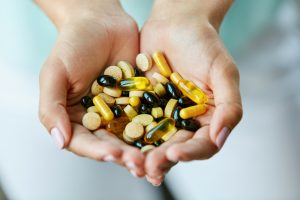 telling them to not cancel the fight and that I wanted to fight because of all the hard work I had done.
telling them to not cancel the fight and that I wanted to fight because of all the hard work I had done.
“I was tested five different times up to this point in the UFC, the last time after the Gabriel Gonzaga fight in 2007, and each time the test results were clear.”
Filipovic is facing at least a two-year suspension from the UFC, which is irrelevant since he has retired. “This calling out and suspensions have no meaning anymore, but I do understand the UFC; I get it. They just want to defend themselves,” Filipovic said.
How You Can Benefit From Pain Relief With HGH
If you are suffering from chronic pain, you do not have the restrictions placed on you that these athletes have to deal with. Our trained, professional staff of medical HGH replacement therapy specialists will address your concerns in a safe, supervised protocol.
We will determine the exact dosage of growth hormone that will attack your pain with a full-court press. Also, we will provide you with a list of supplements that can assist your growth hormone treatment. Here are a few of them you may consider...
- Glucosamine. Glucosamine is an excellent cartilage builder. As we age, glucosamine levels drop, resulting in joint pain as we lose the cartilage cushion between our bones and joints. Glucosamine helps rebuild cartilage, which reduces stiffness, swelling, and pain in our joints.
- Chondroitin. Chondroitin absorbs water like a sponge, which keeps cartilage healthy and hydrated.
- MSM. MSM is an abbreviation for methyl-sulfonyl-methane. MSM dissolves calcium phosphate, which prevents calcium deposits in the body. The result is improved joint flexibility, increased circulation, and better cell vitality...all of which reduce joint pain.
- Hyaluronic Acid. This substance plays a vital role in keeping our tissue's flexibility. This is because it is the main component of synovial fluid. This fluid acts as a shock absorber, and the more of it in your joints, the less pain.
- Hi-Tart Cherry. Hi-Tart Cherry has been shown to decrease nitric oxide, and this is thought to be the reason behind its ability to ease joint pain.
When combined with our powerful, effective growth hormone therapy, you will have the best methods known, with proven ability to ZAP YOUR PAIN! Contact us, and stop experiencing the diminished quality of life that pain burdened you with.
References
https://www.businessinsider.com/mark-cuban-talks-about-using-hgh-for-injury-recovery-2015-12
https://www.cbssports.com/mlb/news/ryan-madson-speaks-out-in-favor-of-hgh-for-injured-players/
https://montreal.ctvnews.ca/pitcher-eric-gagne-admits-using-hgh-1.485748
Contact Us Today For A Free Consultation
Dear Patient,
Once you have completing the above contact form, for security purposes and confirmation, please confirm your information by calling us.
Please call now: 1-800-380-5339.
Welcoming You To Our Clinic, Professor Tom Henderson.

- How to Get Started with HGH Injections [Last Updated On: December 2nd, 2020] [Originally Added On: August 24th, 2020]
- At Last! Introducing Humatrope HGH Replacement Therapy [Last Updated On: February 1st, 2025] [Originally Added On: August 29th, 2020]
- Omnitrope...a Powerful Addition to Your Anti-Aging Toolbox [Last Updated On: January 31st, 2025] [Originally Added On: September 2nd, 2020]
- Nutropin Makes Old Bodies Young Again! [Last Updated On: January 31st, 2025] [Originally Added On: September 3rd, 2020]
- Buy Serostim HGH Injections: Can Serostim injectable human growth hormone help one to increase lean muscle mass through body building? [Last Updated On: January 30th, 2025] [Originally Added On: September 8th, 2020]
- Like To Join The Anti-Aging Party? You Can…With Saizen [Last Updated On: January 28th, 2025] [Originally Added On: September 9th, 2020]
- Causes of Human Growth Hormone (Somatropin) Deficiency [Last Updated On: January 30th, 2025] [Originally Added On: September 17th, 2020]
- Ipamorelin: A new tool to boost your growth hormone levels [Last Updated On: October 10th, 2024] [Originally Added On: March 16th, 2021]
- What You Need to Know About Somatropin (Humatrope) [Last Updated On: January 29th, 2025] [Originally Added On: April 1st, 2021]
- HGH Purchased From Mexico Is Illegal - Don't Buy HGH Illegally [Last Updated On: March 1st, 2025] [Originally Added On: September 2nd, 2021]
- The Incredible Benefits of Growth Hormone [Last Updated On: January 28th, 2025] [Originally Added On: September 14th, 2021]
- Buy Human Growth Hormone Legally! [Last Updated On: January 26th, 2025] [Originally Added On: September 26th, 2021]
- Side Effects and Dangers of Growth Hormone [Last Updated On: March 4th, 2025] [Originally Added On: September 26th, 2021]
- Boost Growth Hormone [Last Updated On: January 19th, 2025] [Originally Added On: September 26th, 2021]
- Growth Hormone: Hollywood's Secret of Youth [Last Updated On: January 26th, 2025] [Originally Added On: September 26th, 2021]
- Glossary of terminology [Last Updated On: August 9th, 2025] [Originally Added On: September 26th, 2021]
- Growth Hormone Side Effects [Last Updated On: January 18th, 2025] [Originally Added On: October 6th, 2021]
- Buy Growth Hormone: Legally [Last Updated On: March 2nd, 2025] [Originally Added On: October 7th, 2021]
- How to Dispose of Needles Correctly [Last Updated On: January 23rd, 2025] [Originally Added On: October 7th, 2021]
- How To Avoid Growth Hormone Scams [Last Updated On: January 22nd, 2025] [Originally Added On: October 7th, 2021]
- How to Inject Growth Hormone [Last Updated On: January 23rd, 2025] [Originally Added On: October 7th, 2021]
- Growth Hormone Testimonials [Last Updated On: January 25th, 2025] [Originally Added On: October 7th, 2021]
- Growth Hormone and Statin Drugs [Last Updated On: January 20th, 2025] [Originally Added On: October 7th, 2021]
- Doctors Comment on Growth Hormone [Last Updated On: January 24th, 2025] [Originally Added On: October 7th, 2021]
- Growth Hormone Therapy Protocol [Last Updated On: January 22nd, 2025] [Originally Added On: October 7th, 2021]
- All About Growth Hormone [Last Updated On: January 21st, 2025] [Originally Added On: October 7th, 2021]
- Guide to Growth Hormone Replacement Therapy: Somatropin [Last Updated On: January 25th, 2025] [Originally Added On: October 25th, 2021]
- Growth Hormone and The Thyroid Gland [Last Updated On: April 24th, 2025] [Originally Added On: November 19th, 2021]
- Weekly HGH Injections with Sogroya for Hypopituitarism [Last Updated On: May 29th, 2025] [Originally Added On: June 27th, 2022]
- From Incel to Chick Magnet in One Easy Step [Last Updated On: October 2nd, 2025] [Originally Added On: July 8th, 2022]
- Slow Aging with Growth Hormone [Last Updated On: May 27th, 2025] [Originally Added On: July 17th, 2022]
- How to Self-Administer HGH [Last Updated On: June 3rd, 2025] [Originally Added On: January 25th, 2023]
- Women in High Stress Situations: Can HGH Help? [Last Updated On: September 21st, 2025] [Originally Added On: March 8th, 2023]
- A Positive Testimonial to HGH Prescription for Growth Hormone Deficiency [Last Updated On: October 24th, 2024] [Originally Added On: September 28th, 2023]
- The Dangers and Illegality of Purchasing HGH from Mexico [Last Updated On: February 25th, 2025] [Originally Added On: February 25th, 2025]
- Legality of Purchasing Human Growth Hormone [Last Updated On: February 26th, 2025] [Originally Added On: February 26th, 2025]
- Implications and Risks of Human Growth Hormone Usage [Last Updated On: February 27th, 2025] [Originally Added On: February 27th, 2025]
